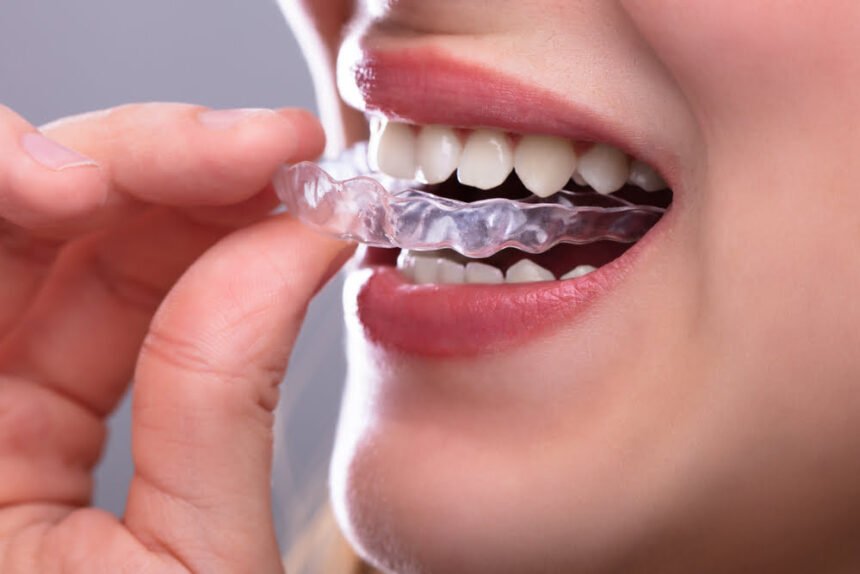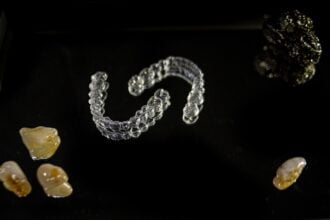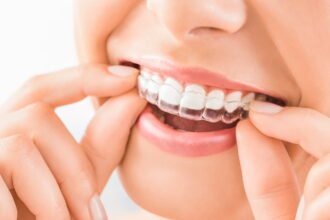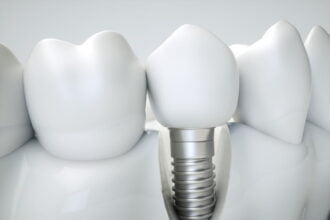Before 1947, a “mouth guard” was a word rarely heard. Boxers were using a material called gutta percha designed by a dentist to protect their teeth during matches.
Hey, it was a step up from the piece of wood they were clamping down on in the 1800’s.
That’s right! Boxers would place a piece of wood between their teeth to clench down on before a fight.
Over the next several decades, as dental mouth guard fabrication evolved, new materials were introduced including acrylics, resins, EVA (ethylene vinyl acetate), copolyester, silicone, and rubber to name a few.
In recent years, people have become increasingly concerned about the safety of the material used to create a dental mouth guard or night guard.
Safety of Night Guard Material
So how are we doing today?
The good news is, any reputable dental lab will prioritize human safety and will only use the highest quality materials.
Your dental mouth guard or night guard safety provider should always be able to tell you the ingredients used to make your custom mouth guard product.
Some Chemicals You Want to Avoid
A good dentist can confidently explain the importance of night guard safety, particularly the best material for dental guards. Not all dental night guards have the same composition. There are harmful chemicals that shouldn’t be present in night guards, which can cause negative health effects. They’re as follows.
BPA
BPA stands for Bisphenol A. It is an industrial chemical that has been around since the 1950’s. It’s been used in the making of many different plastics and the concern is that it can leach into your body and cause possible health issues.
Some studies have reported a connection between BPA exposure and health effects in infants. In adults, the studies have reported effects to the brain, diabetes and even linked to heart disease. However, the threat of BPA is still widely disputed by researchers as many believe the health risk is low.
Most dental night guards and mouth guards are BPA free. But if you buy them from unknown sources, then there’s a possibility of BPA contamination. So, only entrust your dental devices to a licensed and experienced dentist or dental supply store.
Phthalates
Phthalates are a group of chemicals used to make plastics more durable. Just like with the BPA, the threat of low doses of phthalates is still unclear. However, some research shows that exposure to phthalates carries the risk of damaging the liver, kidneys, lungs and reproductive system.
The issue is that phthalates are not chemically bound to the product they’re in. So, they can be released into the environment and may cause human exposure.
Some dental night guards and mouth guards do contain phthalates so be sure to check with your provider before purchasing.
MMA (Methyl Methacrylate)
MMA is mostly used in the manufacturing of resins and acrylic plastics. Respiratory and neurological symptoms have been reported in humans in the event of direct exposure.
However, the EPA considers methyl methacrylate not likely to be carcinogenic to humans.
The bad reputation of MMA came from nail salons that would use liquid MMA for acrylic nails causing skin reactions. Many hard dental night guards do contain MMA. The manufacturers claim that because the material is “cured” and not in liquid form, it has no ability to leach into the body.
Luckily, there are MMA free night guard options available so if you have concerns, simply choose a night guard that is MMA free.
Soft night guards do not contain MMA
A Note On Silicone and Latex
Silicone
Not to be confused with silicon which is an element in the periodic table, silicone is a lab made chemical.
It’s made with Silicon, Oxygen, Carbon and Hydrogen. It’s sometimes used to make flexible, plastic night guards.
Experts say it’s safe to use and likely not toxic because silicone is considered to be chemically stable.
Some people do have allergic reactions to silicone. The allergy often results in a red rash.
Silicone night guards are considered a safe product unless you are allergic.
Latex
Latex is not typically used in the making of dental mouth guards or night guards. That’s because this material can cause allergic reactions in some individuals. Latex allergy is a common allergic reaction ranging from mild skin irritation to severe, life-threatening reactions in sensitized individuals. Hence, manufacturers rarely use this material. If you’re concerned about latex, you can always check with your provider.
Safer Materials
So, what are the safer materials for dental night guards? It’s best to ask your dental care provider about the best material for your case. You might have an allergy to certain substances that require special attention.
The safer materials for dental night guards are as follows:
Ethylene Vinyl Acetate
This copolymer has an excellent response to heat and is used commonly to thermoform soft dental night guards.
EVA has not been found to be carcinogenic by the NTP, ACGIH, IARC or OSHA, and has no known adverse effect on human health.
Copolyester
Copolyesters are a type of thermoplastic resin. They retain their strength and clarity and can even bond to other materials. This material responds well to heat for thermoforming custom fitted night guards. The result is a hard, rigid night guard much like the acrylic night guard.
If you’re looking for an alternative to traditional acrylic night guards, the copolyester “acrylic-like” night guards are a great option.
MSDS sheets report no toxicity in copolyesters. While copolyesters are generally safe materials, following the manufacturer’s guidelines and best practices for handling and use is best. If you have specific concerns about copolyester dental guards, it’s advisable to consult the manufacturer or review additional toxicological data, if available.
Why It Matters
Your health matters. Mouthguard plastics should be rigorously tested and approved before they become available to the public. If you’re considering dental treatments beyond mouthguards, such as braces treatments, it’s important to prioritize the safety of materials as well. Your dental provider should always prioritize your well-being and ensure that the materials used are rigorously tested and approved.
Some dental offices outsource to labs that are located in other countries. This can make it more difficult to verify the safety of materials. A reputable dentist or lab should always be able to verify the materials being used.










